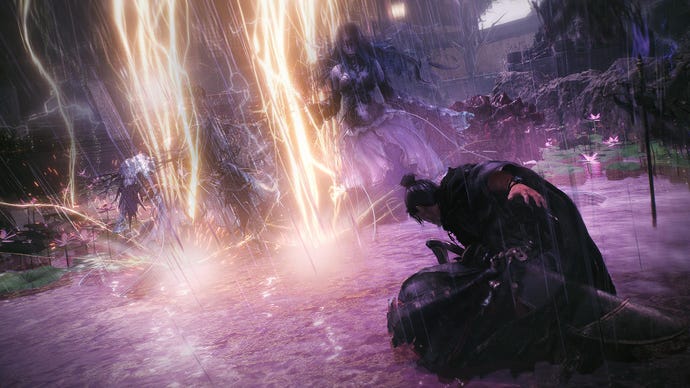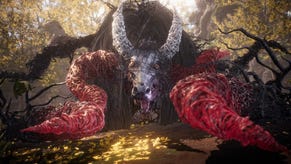Wo Long Spirit Gauge and Qi explained: Why you keep getting staggered
Wo Long: Fallen Dynasty’s most unique systems are also its most complicated, so let’s break them down, staring with Spirit, and Qi.
Early on in Wo Long: Fallen Dynasty’s tutorial, the game introduces you to the Spirit system, the importance of Qi (for both you and your enemies), as well as the Morale mechanic.
In essence, the two are intertwined, but their different effects on the moment-to-moment gameplay is what makes understanding each of them crucial to doing well in Wo Long.
In this guide, we’ll explain everything you need to know about Spirit, energy, and maintaining your Qi. After you’re done here, head over to our Morale, and Fortitude breakdown to round out your understanding of Wo Long’s combat. And, for even more helpful advice, our Wo Long tips are full of gems.
Spirit and Qi, explained
Unlike Nioh and most Souls-like games you may be familiar with, Wo Long does not have a traditional stamina meter. But that doesn’t mean you can attack or dodge as often as you want, as doing either incessantly will still build up the negative side of your Spirit Gauge.
Still, it’s important to not think of your Spirit Gauge as just a different name for stamina.
It’s best to think of the Spirit Gauge as a reflection of the tug of war between you and your opponent in a fight. This is represented by the two different sections of the bar. The orange/negative (left) fills up the more you dodge, and the more damage you take or block.
By contrast, the blue/positive (right) side fills up the more hits you land, the more attacks you deflect, and the more damage your opponent takes from your moves. If you’re struggling, it’s normal for the balance to sit somewhere in the middle; sometimes tipping over one side over the other but never really filling up all the way.
The trick is to never allow the orange section to fill up all the way, because that will break your posture and open you up for a fatal strike. Posture break also makes you unable to move or block for a couple of seconds. When you take a hit, the blue juice (if there's any) will be consumed first before you start getting into the negative.
Whenever you see it dangerously close to being full, your best option is to back off and give yourself some room to breathe. It will slowly recover over time, but it's a slow process. You can, however, quickly turn the tide and tip the balance back towards the blue by landing hits, or deflecting an enemy's attacks.
The good news is that the same concepts also apply to your enemies! If you overwhelm them with attacks, their negative gauge will continue filling up until their posture eventually breaks, letting you land a fatal strike. Even if they continue blocking your attacks, they will still gain some posture damage (though a smaller amount).

Why you want to always stay in the blue
Ideally, you never want your Spirit Gauge to fill up too much on the orange (left) side, that much is easy to understand. The benefits of having a full, or almost full, blue (right) segment, however, are numerous.
In this case, the blue juice effectively acts as both mana for your Wizardry Spells (magic), as well as your weapon’s Martial Arts moves. There are different costs associated with each Wizardry Spell, and Martial Arts skill, which you can read about in their respective menus.
You’ll note that Wizardry Spells and Martial Arts can be used even if your Spirit Gauge is neutral, i.e. both sections are empty. Doing so will strain the negative side, meaning you can break your own posture just by spamming them, so just be mindful of their costs vs your own gauge.
With that in mind, you ideally want to use either of those when you have blue juice to spare. You can get into a positive loop of expending blue to land more powerful hits, and in turn get more blue to use for even more attacks.
Over time, you’ll be able to upgrade the Spirit Guage itself, how much Qi is gained/lost on attack/defect, as well as how long your acquired energy on the blue (right) side stays before it starts dissipating.








